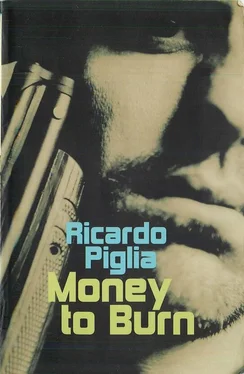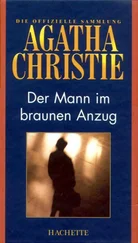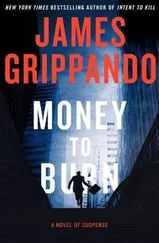Ricardo Piglia - Money to Burn
Здесь есть возможность читать онлайн «Ricardo Piglia - Money to Burn» весь текст электронной книги совершенно бесплатно (целиком полную версию без сокращений). В некоторых случаях можно слушать аудио, скачать через торрент в формате fb2 и присутствует краткое содержание. Год выпуска: 2004, Издательство: Granta UK, Жанр: Современная проза, на английском языке. Описание произведения, (предисловие) а так же отзывы посетителей доступны на портале библиотеки ЛибКат.
- Название:Money to Burn
- Автор:
- Издательство:Granta UK
- Жанр:
- Год:2004
- ISBN:нет данных
- Рейтинг книги:5 / 5. Голосов: 1
-
Избранное:Добавить в избранное
- Отзывы:
-
Ваша оценка:
- 100
- 1
- 2
- 3
- 4
- 5
Money to Burn: краткое содержание, описание и аннотация
Предлагаем к чтению аннотацию, описание, краткое содержание или предисловие (зависит от того, что написал сам автор книги «Money to Burn»). Если вы не нашли необходимую информацию о книге — напишите в комментариях, мы постараемся отыскать её.
Money to Burn — читать онлайн бесплатно полную книгу (весь текст) целиком
Ниже представлен текст книги, разбитый по страницам. Система сохранения места последней прочитанной страницы, позволяет с удобством читать онлайн бесплатно книгу «Money to Burn», без необходимости каждый раз заново искать на чём Вы остановились. Поставьте закладку, и сможете в любой момент перейти на страницу, на которой закончили чтение.
Интервал:
Закладка:
From all this, the police deduced that the gunmen, well- stocked with ammunition and ready for anything, were capable of maintaining their position to the last, which was why their attack strategy began to modify as the hours passed. They began to toy with a number of options, talking of launching a grenade of relatively low potency; of injecting the apartment where they were holed up with chemical products used to tamp down fires and which stick to the skin like liquid rubber or napalm, something they definitely would have used had the gang members emerged from their den; of making a breach in the roof in order to be able to fire directly down from the apartment overhead on the second floor; or to open up a hole in the wall adjoining apartment number eight on the first floor, with the same intention of firing on them from in there. The seconds of uncertainty dragged on into several minutes.
Whenever the Gaucho was drugged, he swore to give up drugs, for that was when he believed himself capable of doing so because he was no longer propelled by the wild desire for fresh supplies and thought that a life lived in pursuit of his dealer wasn't a life worth bothering with. The problem was that once he lacked drugs, he couldn't give up, when he didn't have them, he couldn't even think of giving up, he thought only of one thing, of pursuing and obtaining drugs. And the worst of it was, he suddenly realized, horror-stricken, as if yet again the damned voices which had remained quiet for a while had now woken up in order to alarm him, what he finally realized was that if they remained banged up there, sooner or later they were going to find they'd run out of drugs altogether.
'The gear,' he observed, 'is going to run out sooner or later, because however many grams there are, even if we ration ourselves like in a shipwreck… you know, once I saw a guy like that on television, who said he'd taken water daily from a teaspoon, so that the water wouldn't run out, on their desert island.'
'On a teaspoon? On a desert island? Water? They sipped it?'
'Like tea.' The Gaucho made a gesture of lifting a teaspoon, little finger crooked, sipping like a bird.
The Crow laughed: he hadn't left the window the entire night through. He had spread his supply of Florinol out on a newspaper and continued taking one every so often, while the apartment floated in a pearly cloud around him.
'Time to get out,' it sounds to the Gaucho like a voice emanating from an oracle. Gaucho Dorda listens to a chorus of voices issuing orders, voices so subdued you can scarcely hear them, least of all once the firing starts up.
'You know, Kid, they don't speak when there's a racket going on, I can't hear them, they get erased, that's right, then all of a sudden those bitches start nagging again.'
'We've got some maconha.'
' Maconha ?'
'I used to live in Brazil, mate, didn't I tell you? There they call grass maconha … this lot came from Paraguay… the dark-skinned girl gave it me… she kept it safe in a tin box in the kitchen, she did…'
The Kid got himself across the flat, along its invisible passages, crossing doorways, and finally reached the kitchen where he stumbled into the sideboard, rummaged around with his hand, and pulled out the tin, with its sweet scent of hash. ' La Cucaracha, La Cucaracha ,'{19} the Kid returned singing, ya no puede caminar, porque le falta, porque no time …,' the radio operator was convinced he could hear him singing, Roque Pérez, from some corner of the building, someone, at least, was definitely singing this Mexican corrido from the Civil War period.
'This toilet is totally flooded. You have to pee in this bucket and we'll chuck it out of the window on to the heads of the pigs…'
'Where did you get the grass?'
'It was that little whore's, she brought it in from Paraguay…'
They lit some joints and settled down to watch television. The bullets scarcely reached this side of the flat, close to the way out, and whenever the inmates stayed quiet for a while, the cops became nervous and started firing into the air.
'Look, they've got an armoured personnel carrier, and there's around a thousand of them.'
In the dawn drizzle you could see the squad and the lorries and the journalists on the pavement; the television showed it through a grey corrugated ridge of lines.
'But they're not going to get us out of here. They're going to have to negotiate.'
They were waiting for Malito. Perhaps it was true he had taken a hostage, the son of some aristocrat, and all of a sudden he'd appear on the television screen demanding their release. He was going to come and get them out, he was going to arrive with reinforcements, Malito was. The heavy squad, it'd be, Brazilians from Rio Grande do Sul. He was their mafia boss, was Malito, crazy but highly intelligent, always keeping his distance, not giving a fuck, but straight down the line with his own people, someone who'd never leave them in the lurch, if they could have soaked him by simply lifting up the receiver on the intercom and saying: 'I've got a meeting with Malito on 18 de julio Street.' The dark-skinned girl could have told him about it. As for Malito? Did he know she had a room in a boarding- house near the Mercado? Very much under surveillance just now. They had seen her appear numerous times on television talking nonsense and accusing all and sundry of raping her. Lies to throw them off the scent and get herself off the hook.
'Baby,' said the Kid, and he was talking to the girl's image onscreen. 'Quiet down, skinny, don't keep gassing.' She looked straight at him, from out of the screen, and the Kid disappeared to the back of the flat and put the Winco on with the record by Head and Body:
And if I can find a book of matches
I'm goin' to burn this hotel down…
The Kid was singing along with the chorus to 'Parallel Lives'.
The sounds of the night mingled with the dead music of the city itself. Was that Mereles' voice? Number Three's voice? Or could it be Number Two's?
'Once I was trapped down a well for four days. I fell in as a kid and was stuck in there with all these insects crawling over my face and I couldn't shout because I was scared they'd get into my throat and in the end I was rescued by my dog who dug like crazy around the edge of the well.'
Who was that talking? Roque Pérez's universe was growing narrower all the time; there was no space left in the diminutive control room where he was in charge of manoeuvres: he was constrained to follow the almost inaudible sounds emanating from the skeleton of the building. They generated a level of interference and were therefore connected with the spirit of an entire city. The voices travelled along interior canals, because inside the spider's web of the intercom the police had planted two microphones (or was there just one? one solitary microphone up there in the air?). They had installed them to pursue the paths taken by the drugs circulating through the nightclubs, and now they were using them to pursue the traces of these malefactors, although it was possible that they had placed him, Pérez, there in ten-hour shifts, to catch the secret the Argies were still concealing and the police chiefs wanted to elicit before killing them off. But there were additional voices coming in from the other side he couldn't decipher. Perhaps from the past, the radio operator was wondering. Maybe the words of the dead navigate their way through the subterranean sewage system and make it possible to follow the terrified prayer of two old women who'd locked themselves in the bathroom of some apartment or other.
'Holy Mary, Mother of God, pray for us sinners…'
Where did this recital of the rosary come from, perhaps from the wireless operator's own memory, perhaps it was the voice of one of the gangsters, or the lamentation of a neighbour. He continued recording all these sounds, and next to him someone was trying to pick their way through the morass of voices. He couldn't leave, he was surrounded, he felt like a spy during the war, sending out messages from behind Japanese lines. A Uruguayan policeman, Corporal Roque Pérez, wireless operator by profession, dropped into the Battle of the River Plate. And if the gunmen took control of the building and discovered him, up there in his little attic, they'd execute him with a bullet to the back of the head at five metres.
Читать дальшеИнтервал:
Закладка:
Похожие книги на «Money to Burn»
Представляем Вашему вниманию похожие книги на «Money to Burn» списком для выбора. Мы отобрали схожую по названию и смыслу литературу в надежде предоставить читателям больше вариантов отыскать новые, интересные, ещё непрочитанные произведения.
Обсуждение, отзывы о книге «Money to Burn» и просто собственные мнения читателей. Оставьте ваши комментарии, напишите, что Вы думаете о произведении, его смысле или главных героях. Укажите что конкретно понравилось, а что нет, и почему Вы так считаете.












